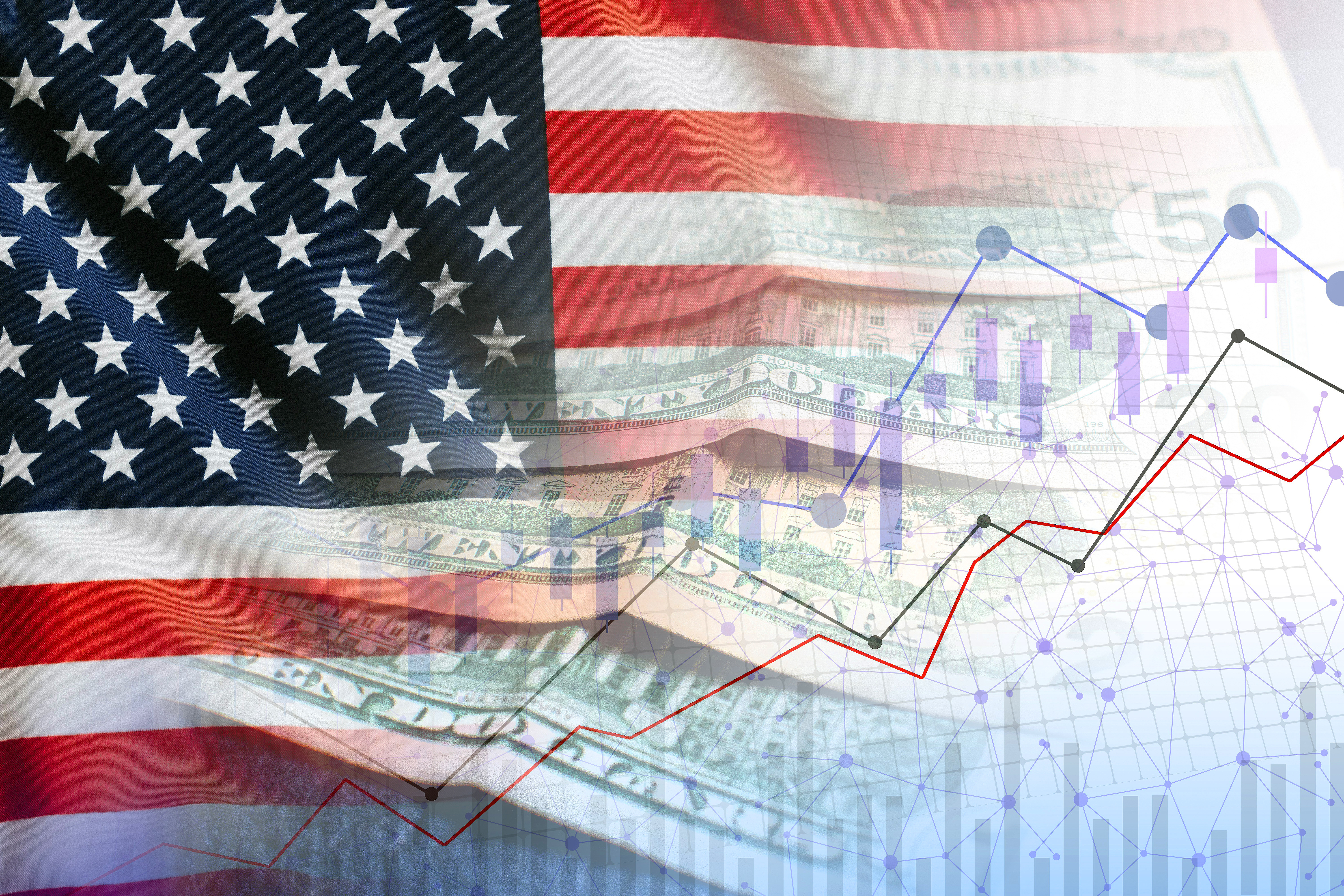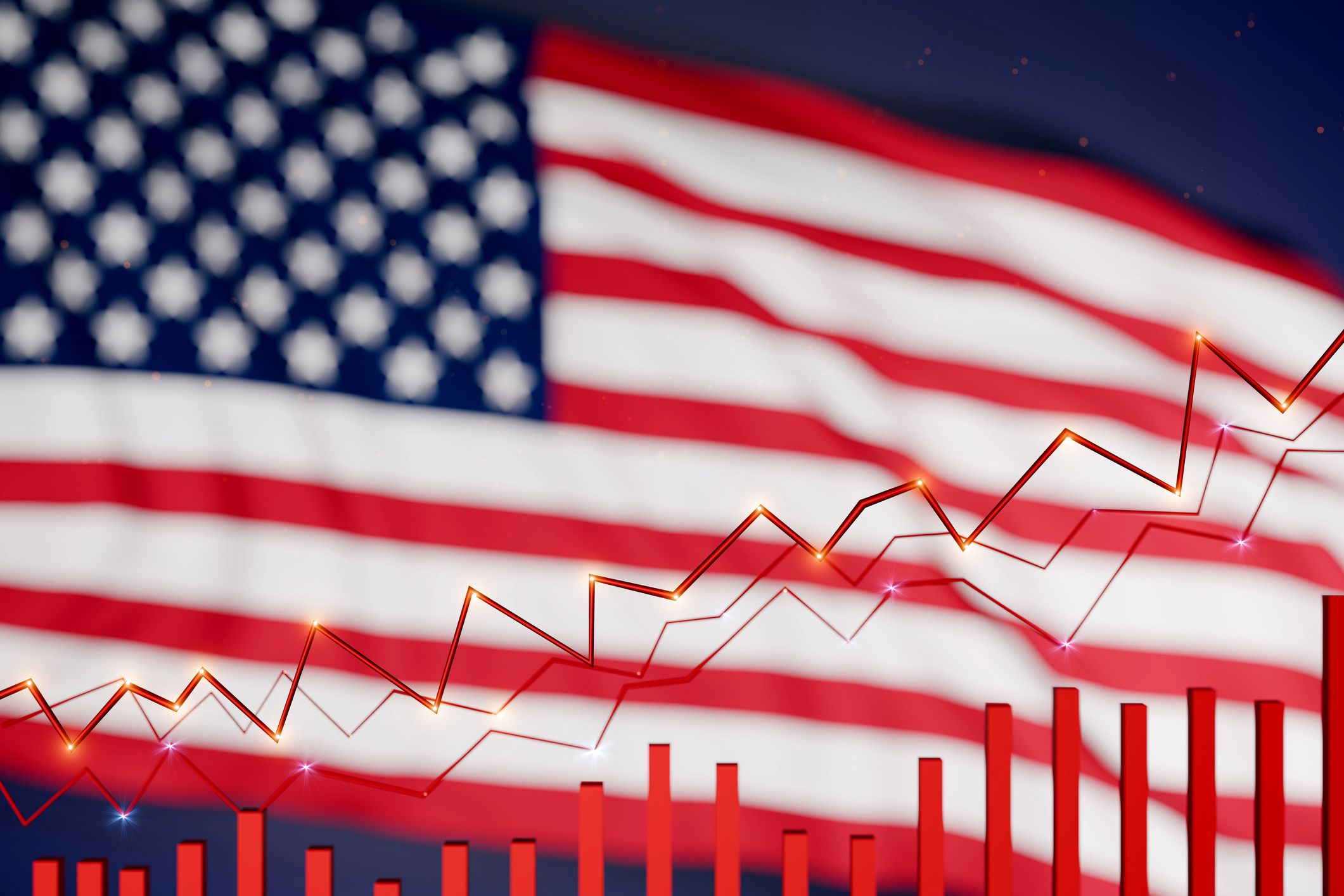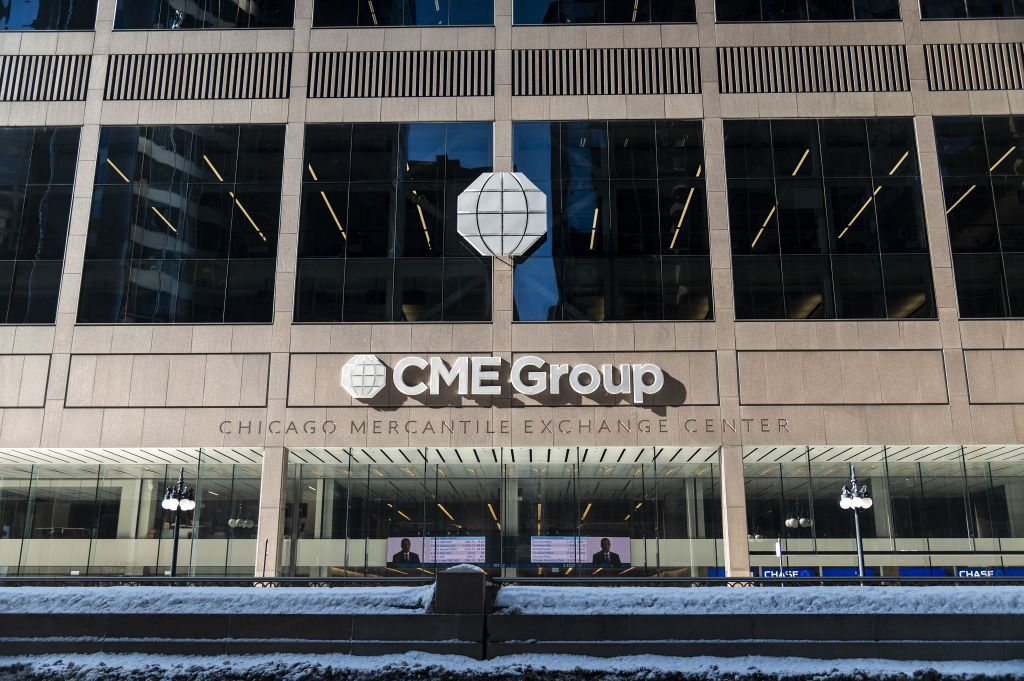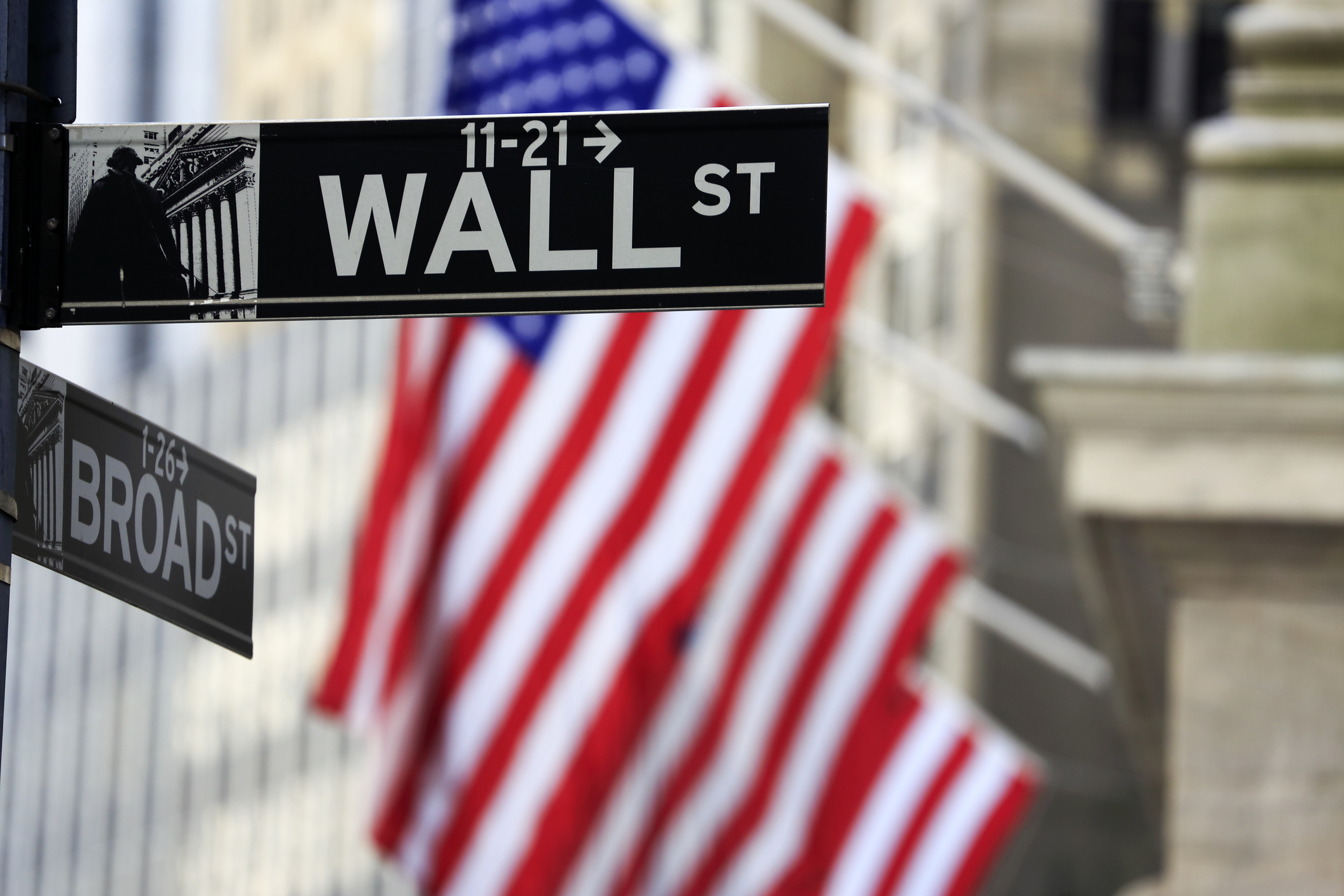
Get the latest financial news, insights and expert analysis from our award-winning MoneyWeek team, to help you understand what really matters when it comes to your finances.
You are now subscribed
Your newsletter sign-up was successful
Want to add more newsletters?
It has taken barely a month for consensus opinion to shift from thinking that the US market is invincible to declaring that US exceptionalism is over, so its market will underperform indefinitely. And all because president Donald Trump is causing chaos and confusion with tariff proposals, which not only change from day to day, but have also been the preferred economic tool of the US since its creation, as Marc Levinson of Bloomberg reminds us.
The S&P 500 did fall 20% from its February peak to its early April low, but is now down just 6% in 2025. Remember that at the start of the year, the US was trading on 22.4 times expected earnings for 2025, so it was ripe for a setback regardless of Trump’s antics. It fell to a multiple of 19.2 on 8 April, but is now back up to 20. Meanwhile, UK and European markets are up for the year to date. So what’s all the panic about?
With energy prices low, interest rates falling and no evidence of financial distress, a recession in the US looks unlikely. Economic growth is probably slowing, but to a pace still far better than is likely to be achieved in the UK and Europe.
Try 6 free issues of MoneyWeek today
Get unparalleled financial insight, analysis and expert opinion you can profit from.

Sign up to Money Morning
Don't miss the latest investment and personal finances news, market analysis, plus money-saving tips with our free twice-daily newsletter
Don't miss the latest investment and personal finances news, market analysis, plus money-saving tips with our free twice-daily newsletter
Analysts are cutting profit forecasts, but they often do, only to see actual quarterly results beat expectations. First-quarter results for US firms are beating expectations by more than 7%, well above the usual amount. As a result, although the forward earnings multiple of 20 is not exactly cheap, it is reasonable given earnings growth and a ten-year government bond yield back below 4.2%.
The Economist is a contrary indicator
“Is this the strongest buy signal ever?” asks Ed Yardeni of Yardeni Research. He contrasts the popular extreme pessimism with a reasonable economic and corporate outlook. He notes four consecutive bearish cover stories of The Economist – “Only 1,361 days to go; How a dollar crisis would unfold; The age of chaos and Ruination day. The Economist’s cover, as well as that of other business magazines, has a long history of being a reliable contrary indicator.
He also notes that sentiment indicators for the stock market have hit rock-bottom levels. “But if our suspicions are right, and some hints of dawn reappear sooner rather than later, then writing off 2025 as an unmitigated disaster for stocks might be a costly mistake.” Investors may need to show a little patience and there may be further setbacks ahead, but it is likely that the lows of the year have been seen.
What should investors buy? At times of market stress, it usually makes sense to buy the obvious funds – rather than specialist ones, those on large discounts to net asset value (NAV), or those demonstrably cheap. Such funds do not lead the market up. Well-diversified global trusts such as Alliance Witan, F&C and JPMorgan Global Growth & Income all have solid long-term records and move with the market.
Contrarian investors will want to bet against the prevailing conviction against the US and technology and growth. That suggests JPMorgan American, Scottish Mortgage and the two technology specialists, the Polar Capital Technology Trust and the Allianz Technology Trust. US outperformance on the scale seen in the last 20 years is ultimately unsustainable, but it may not be over yet and even if it is, the US should still perform well in absolute terms.
Those nervous about relatively high US valuations could look at the two US small-cap trusts, Brown Advisory and JPMorgan US Smaller Companies. The S&P 400 mid-cap index trades on a multiple of 14.3 times expected earnings and the S&P 600 small-cap index on 13.8 times. US market leadership will change; it may no longer be led by all of the “Magnificent Seven”. For example, Marc Weiss of technology experts Open Field Capital believes that “AI value is shifting rapidly away from silicon chips and models (ie, Nvidia) towards AI applications”. This opens up a new field of opportunities.
Still, “the Magnificent Seven are still magnificent”, argues Yardeni, who points out that “the forward price/ earnings multiple of the Magnificent Seven plunged from 30 at the start of the year to 21.7 on 8 April”. Following good quarterly results, the Seven are now leading the rally. A rising yen is more likely to attract capital into Japan, where a very positive outlook for investment has been undermined by a weak currency.
The value funds, Nippon Active Value and AVI Japan, have been by far the best performers for the last five years, but the growth-orientated Japan trusts managed by Baillie Gifford, Fidelity and JPMorgan may start to catch up. The CC Japan Income & Growth and the Schroder Japan Trust are a good compromise.
It’s hard to see anything in the market that is overpriced, with one exception: gold, as expensive in real terms as it was at the 1980 peak. Goldman Sachs forecasts that the price will reach $4,000 an ounce, but those with long memories will recall that in 2008, with the price of oil at $150 a barrel, Goldman Sachs was forecasting $200 a barrel.
The price soon collapsed and has never seen $150 a barrel again, securing Goldman Sachs’ reputation for being a contrary indicator. As Keynes said, “my central principle of investment is to go contrary to general opinion on the ground that, if everyone agreed about its merits, the investment is inevitably too dear and unattractive”. That rationale supports buying shares and selling gold.
This article was first published in MoneyWeek's magazine. Enjoy exclusive early access to news, opinion and analysis from our team of financial experts with a MoneyWeek subscription.
Get the latest financial news, insights and expert analysis from our award-winning MoneyWeek team, to help you understand what really matters when it comes to your finances.

Max has an Economics degree from the University of Cambridge and is a chartered accountant. He worked at Investec Asset Management for 12 years, managing multi-asset funds investing in internally and externally managed funds, including investment trusts. This included a fund of investment trusts which grew to £120m+. Max has managed ten investment trusts (winning many awards) and sat on the boards of three trusts – two directorships are still active.
After 39 years in financial services, including 30 as a professional fund manager, Max took semi-retirement in 2017. Max has been a MoneyWeek columnist since 2016 writing about investment funds and more generally on markets online, plus occasional opinion pieces. He also writes for the Investment Trust Handbook each year and has contributed to The Daily Telegraph and other publications. See here for details of current investments held by Max.
-
 Do you face ‘double whammy’ inheritance tax blow? How to lessen the impact
Do you face ‘double whammy’ inheritance tax blow? How to lessen the impactFrozen tax thresholds and pensions falling within the scope of inheritance tax will drag thousands more estates into losing their residence nil-rate band, analysis suggests
-
 Has the market misjudged Relx?
Has the market misjudged Relx?Relx shares fell on fears that AI was about to eat its lunch, but the firm remains well placed to thrive
-
 Stock markets have a mountain to climb: opt for resilience, growth and value
Stock markets have a mountain to climb: opt for resilience, growth and valueOpinion Julian Wheeler, partner and US equity specialist, Shard Capital, highlights three US stocks where he would put his money
-
 A change in leadership: Is US stock market exceptionalism over?
A change in leadership: Is US stock market exceptionalism over?US stocks trailed the rest of the world in 2025. Is this a sign that a long-overdue shift is underway?
-
 Profit from other investors’ trades with CME Group
Profit from other investors’ trades with CME GroupCME Group is one of the world’s largest exchanges, which gives it a significant competitive advantage
-
 AI is a bet we’re forced to make
AI is a bet we’re forced to makeIt’s impossible to say yet if AI will revolutionise the world, but failure would clearly be very costly, says Cris Sholto Heaton
-
 Who is Rob Granieri, the mysterious billionaire leader of Jane Street?
Who is Rob Granieri, the mysterious billionaire leader of Jane Street?Profits at Jane Street have exploded, throwing billionaire Rob Granieri into the limelight. But it’s not just the firm’s success that is prompting scrutiny
-
 'Investors should back the AI maximalists'
'Investors should back the AI maximalists'Polar Capital is bullish on AI and believe that the sector is far from being a bubble
-
 Why investors should avoid market monomania
Why investors should avoid market monomaniaOpinion Today’s overwhelming focus on US markets leaves investors guessing about opportunities and risks elsewhere
-
 Okta: an undervalued cybersecurity play
Okta: an undervalued cybersecurity playOkta provides vital security services and appears cheap considering AI’s growing prominence
